Analyzing and Exploring the Impact of Big Data Analytics in Sports Sector
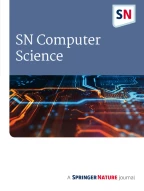
Big data are the first-ever use of data and statistics enabling us to make effective decisions in professional sports. The primary focus of the research paper is to evaluate how the use of big data has benefited sports. The research work conducted in the paper focuses on extracting information from the constructed database as per user requirements. Two different databases have been constructed by gathering data from espncricinfo.com. The first database consists of the records of batsmen comprising 16 attributes relevant to the international career of the batsmen. The second database contains records of bowlers involving 18 attributes relevant to the international career of the bowlers. The research paper encompasses a detailed flowchart and an algorithm detailing the systematic approach followed to mine required data from the database. The research has been conducted focusing to come up with a user-friendly tool that would offer optimal results via simplified scripts and queries in tabular and visualization form. The research enables any cricket fan or a layman to mine the information in which he/she is interested. The research paper elaborates on the use of the Hortonworks Hue 2.2.0 framework in analyzing the gathered data and extracting information via appropriate tools of the framework as per need. The screenshots included in the research work enable the general masses to have insight into the workflow of the conducted research and to gain a better understanding of performing different functions on different tools. As compared to past research, the research work does not make use of any statistical tools which are difficult to understand and work upon. The constructed database is made available to the framework and the queries and scripts are formatted to get results in tabular and graphical form. The research work enables coaches and instructors to select the best batsmen and outstanding bowlers to construct a strong team via mining the relevant databases and come out with the best outcome. The research work even enables general masses to build their teams after analyzing the past performance of different batsmen and bowlers and construct their teams and participate in fantasy gaming platforms like Dream11, MyTeam11, Howzat, etc. The research paper illustrates the work conducted on sentiment analysis using Python and Java programming languages to predict the popularity of batsmen or bowlers via word cloud to get a deep insight into the public opinion regarding upcoming tournaments based on past performances of the players and the teams.
This is a preview of subscription content, log in via an institution to check access.
Access this article
Subscribe and save
Springer+ Basic
€32.70 /Month
- Get 10 units per month
- Download Article/Chapter or eBook
- 1 Unit = 1 Article or 1 Chapter
- Cancel anytime
Buy Now
Price includes VAT (France)
Instant access to the full article PDF.
Rent this article via DeepDyve
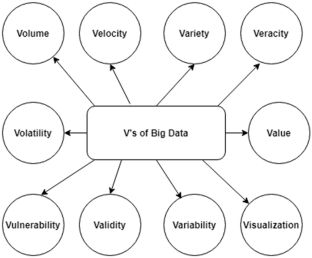
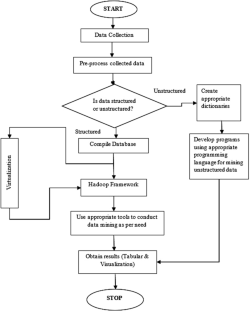
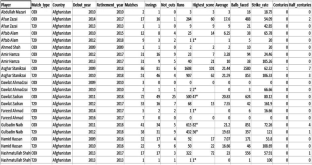
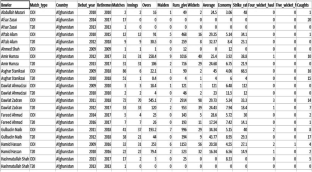
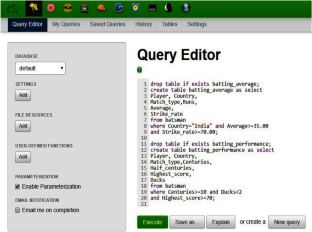
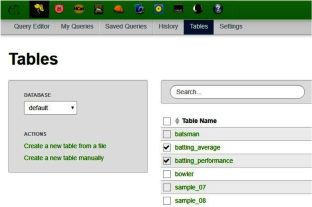
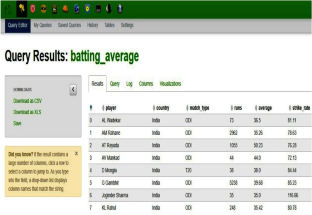


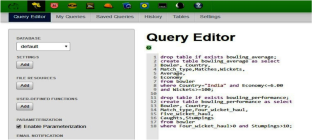
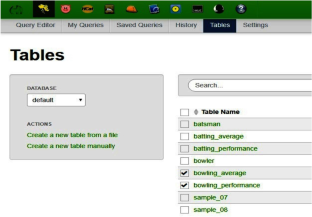

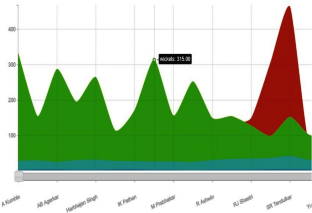


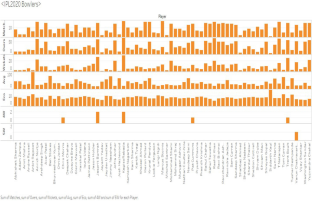
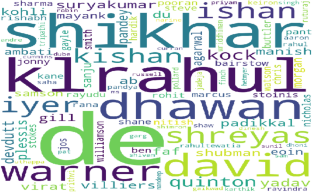
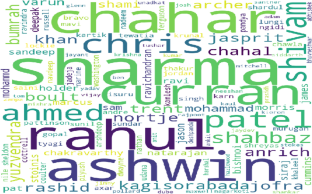
Similar content being viewed by others

Big Data from Collection to Use in Competitive Games—A Study Case on Badminton
Chapter © 2021

The Application of Big Data Technology in Competitive Sports Research
Chapter © 2018

Sports Data Analytics: A Case Study of off-Field Behavior of Players
Chapter © 2020
Explore related subjects
References
- Rein R, Memmert D. Big data and tactical analysis in elite soccer: future challenges and opportunities for sports science. Springer Plus. 2016;5(1410):1–13. Google Scholar
- Jhawar MG, Pudi V. Predicting the outcome of ODI cricket matches: a team composition based approach. In: European conference on machine learning and principles and practice of knowledge discovery in databases; 2016. pp. 1–11.
- Kalgotra P, et al. Predictive modelling in sports leagues: an application in Indian Premier League. In: SAS Global Forum; 2013. pp. 1–11.
- Podeszwa K. Top 20 big data cases in sport. Divante. 2016. http://divante.co/blog/top-20-big-data-cases-sport/. Accessed 10 Jan 2021.
- Hutchins B. Tales of the digital sublime: tacing the relationship between big data and professional sport. Convergence. 2016;22(5):494–509. ArticleGoogle Scholar
- Millington B, Millington R. The datafication of everything: toward a sociology of sport and big data. Sociol Sport J. 2015;32:140–60. ArticleGoogle Scholar
- Liu Q, Xinsen H. Development strategy of competitive sports system in big data era. J Cap Inst Phys Educ. 2015;2:156–9. Google Scholar
- Gandomi A, Haider M. Beyond the hype: big data concepts, methods and analytics. Int J Inf Manag. 2015;35(2):37–44. ArticleGoogle Scholar
- Wu X, et al. Data mining with big data. IEEE Trans Knowl Data Eng. 2014;26(1):97–107. ArticleGoogle Scholar
- Rajaraman UJD. Mining of massive datasets. Cambridge University Press; 2012. Google Scholar
- Gupta M, George JF. Toward the development of a big data analytics capability. Inf Manag. 2016;53(8):1049–64. ArticleGoogle Scholar
- Kent P, et al. Finding big value in big data: unlocking the power of high performance analytics. In: Liebowitz J, editor., et al., Big data and business analytics. CRC Press Taylor & Francis Group; 2013. p. 87–102. Google Scholar
- Agarwal R, Dhar V. Big data, data science, and analytics: the opportunity and challenge for IS research. Inf Syst Res. 2014;25(3):443–8. ArticleGoogle Scholar
- Chen HM, et al. Business intelligence and analytics: from big data to big impact. MIS Q. 2012;36(4):1165–88. ArticleGoogle Scholar
- Constantiou ID, Kallinikos J. New games, new rules: big data and the changing context of strategy. J Inf Technol. 2015;30(1):44–57. ArticleGoogle Scholar
- Singh S, Kaur P. IPL visualization and prediction using HBase. In: Information technology and quantitative management (ITQM2017), Procedia Computer Science; 2017. Vol. 122, pp. 910–915.
- Agarwal S, et al. Cricket team prediction with hadoop: statistical modeling approach. In: Information technology and quantitative management (ITQM2017), Elsevier, Procedia Computer Science; 2017. Vol. 122, pp. 525–532.
- Passi K, Pandey N. Increased prediction accuracy in the game of cricket using machine learning. Int J Data Min Knowl Manag Process. 2018;8(2):19–36. ArticleGoogle Scholar
- Thenmozhi D, et al. Moneyball - data mining on cricket dataset. In: IEEE second international conference on computational intelligence in data science (ICCIDS-2019); 2019. pp. 1–6.
- Hatharasinghe MM, Poravi G. Data mining and machine learning in cricket match outcome prediction: missing links. In: IEEE 5th international conference for convergence in technology (I2CT), Pune, India; 2019. pp. 1–4.
- George G, et al. Big data and management. Acad Manag J. 2014;57(2):321–6. ArticleGoogle Scholar
- Lytras MD, et al. Big-data and data analytics research: from metaphors to value space for collective wisdom in human decision making and smart machines. Int J Semant Web Inf Syst. 2017;13:1–10. ArticleGoogle Scholar
- Gunther WA, et al. Debating big data: a literature review on realizing value from big data. J Strateg Inf Syst. 2017;26(3):191–209. ArticleGoogle Scholar
- Bhimani A. Exploring big data’s strategic consequences. J Inf Technol. 2015;30(1):66–9. ArticleGoogle Scholar
- Nandimath J, et al. Big data analysis using apache hadoop. In: IEEE IRI 2013, San Francisco, CA, USA; 2013. pp. 700–703.
- https://thetechmusings.wordpress.com/2011/02/28/hadoop-an-inspirational-clone-of-gfs/hadoop_framework/. Accessed 05 Jan 2021.
- Wunderlich F, Memmert D. Innovative approaches in sports science—lexicon-based sentiment analysis as a tool to analyze sports-related twitter communication. Appl Sci. 2020;10(431):1–12. Google Scholar
- Drus Z, Khalid H. Sentiment analysis in social media and its application: systematic literature review. In: The fifth information systems international conference 2019. Elsevier, Procedia Computer Science; 2019. Vol. 161, pp. 707–714.
- Kumar A, Garg G. Systematic literature review on context-based sentiment analysis in social multimedia. Multimed Tools Appl. 2020;79:15349–80. ArticleGoogle Scholar
- Agarwal A, Toshniwal D. Application of lexicon based approach in sentiment analysis for short tweets. In: IEEE international conference on advances in computing and communication engineering, Paris, France; 2018. pp. 189–193.
- Rodrigues AP, Chiplunkar NN. A new big data approach for topic classification and sentiment analysis of Twitter data. In: Evolutionary Intelligence, Springer Verlag; 2019. pp. 1–11.
Author information
Authors and Affiliations
- Guru Gobind Singh Khalsa College, Bhagta Bhai Ka, Bathinda, Punjab, India Amandeep Kaur
- Bhai Behlo Khalsa Girls College, Phephre Bhai Ke, Mansa, Punjab, India Ramandeep Kaur
- Punjabi University Guru Kashi College, Damdama Sahib, Bathinda, Punjab, India Gagandeep Jagdev
- Amandeep Kaur



















